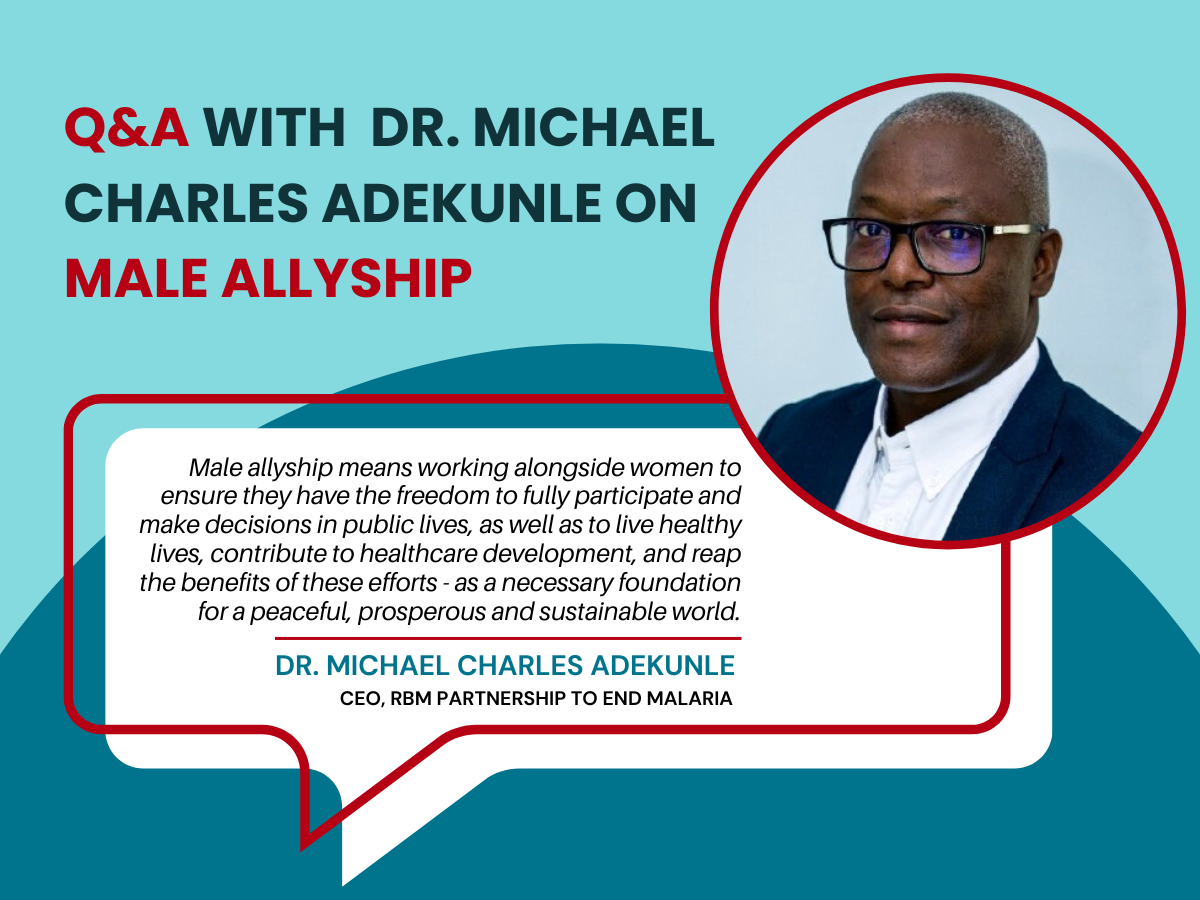What does male allyship mean to you, and is it essential to achieving gender equality in global health?
Male allyship means working alongside women to ensure they have the freedom to fully participate and make decisions in public lives, as well as to live healthy lives, contribute to healthcare development, and reap the benefits of these efforts – as a necessary foundation for a peaceful, prosperous and sustainable world.
Male allyship is essential in global health to achieve gender equality. Countries with high levels of gender inequalities put women and girls at greater risk of diseases such as malaria due to limited access to vital health resources and lack of inclusion in decisions being made about healthcare. By working alongside women, challenging harmful gender norms, and advocating for fairness and inclusivity in policies and interventions, male allies can contribute to a world where everyone can thrive.
What are some common misconceptions about male allyship and what do you think it should look like in practice?
One major misconception is that it’s all about male allies changing policies. Policies are foundational frameworks for promoting gender equality, providing structure and guidance for systemic change. For the policies to be effective, day-to-day actions and activities by male allies to advance gender equality are vital. These actions may seem minor initially, but over time, they accumulate to create significant shifts in attitudes, behaviours, and social norms.
Day-to-day actions could include men taking the time to read and understand women’s health, supporting women to gain knowledge or information needed to contribute to decision-making at all levels of society, or by advocating for systemic change. We all must lead by example if we are to see change which will benefit us all.
How can we build a strong base of male allies within global health?
As male allies in global health, we are responsible for actively promoting gender equity in all aspects of our work, including day-to-day activities. Health leaders at all levels of society need to be vocal about the steps taken by male allies to promote gender equality. Gender equality can only be a reality if we have male allies at all levels of society, including in each community. Sharing examples of success through various communication channels is one step. Communication also needs to address the challenges faced due to gender inequality, emphasising that the whole society suffers, including men.
There are other practical steps we can take too such as role modelling this behaviour, ensuring opportunities are shared equitably in teams, speaking out when you see gender bias in action and fostering a culture of allyship by setting up diversity, equity and inclusion groups. This won’t solve all the challenges, but should go some way in progressing the cause.
What advice would you give to men hesitant to step up as loud and proud advocates for gender equality?
I would say, consider this: The fight for gender equality is about developing a flourishing society for all. For me it starts with listening. Finding out what women need, what needs to change and what are all of our roles in advancing the solutions to the issues. I would advise all men to educate themselves, challenge biases, and amplify women’s voices.
How can more institutions in global health foster a culture of male allyship?
To foster a culture of male allyship, leaders must publicly endorse gender equality as a core value in global health institutions. Male allies in leadership at all levels of society should create opportunities for dialogue, address unconscious bias and privilege, and practice inclusive leadership to promote gender-related issues and improve institutional policies. Gender equality and accountability should be at the forefront of our minds in everything we do and should be on the table at the heart of of policy making organizations if we are to make real, lasting change and create impact.
Dr. Michael Adekunle is the CEO, RBM Partnership to End Malaria


